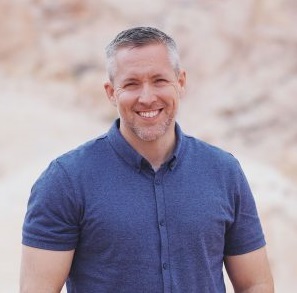White privilege is real, Southern Baptist Convention President J.D. Greear said in a recent podcast.
“By God’s grace we have access to the same laws and officially the same rights, and we’re grateful for the things that have changed in our history to lead to that, but still there’s this kind of invisible set of assets that I get from being part of the majority culture,” Greear, pastor of The Summit Church in Raleigh-Durham, North Carolina, said in an installment of his Ask Me Anything podcast series.

J.D. Greear
“When I get pulled over by the police, I’ve never one time in my life – and I’ve been pulled over a number of times for traffic incidents – I’ve never one time questioned whether or not it was because of my race,” said Greear, who is white. “Every person of color I know has some story that goes back to this happening where it appeared that there was a lot of questioning that was being given to them because they were a certain race.”
“There is a clerk following you in the store, because they assume you’re maybe going to steal something,” he cited another example. “Several of our friends here talk about that still happening with them.”
Greear said white people also have advantages in important areas like access to housing or looking for a job.
“Where it gets really difficult is when you get into the justice system, because when it comes to a policeman deciding whether or not he needs to use force, when it comes a judge deciding how long the sentence should be or if the person should get probation, well you certainly don’t want race to be a factor in that,” he said. “And there’s some evidence that seems to indicate that especially when it comes to something like the death penalty, that being a person of color increases the likelihood that the death penalty is given in a case. That shouldn’t be and shouldn’t even be a question.”
Greear said the solution is not to take rights away from one group and give them to another but for people who experience privilege of any kind to want people from different races and backgrounds to have access to the same opportunities.
Greear said politicians disagree about the best public policy solution to inequality in the United States, but as a pastor he can say to all Christians “whatever privilege you have, it is your responsibility to leverage it to help others who are not as privileged.”
“The dividing line in this issue is not between liberal or conservative strategies to empower people,” he said. “The dividing line is between people who care about others and them experiencing the same privileges we experience and those who don’t.”
“As a Christian — whether you adopt more of a progressive or a conservative approach — you can care about this issue and want to see all people in our culture treated with dignity and experience the same privileges that any of us experience,” he said.
